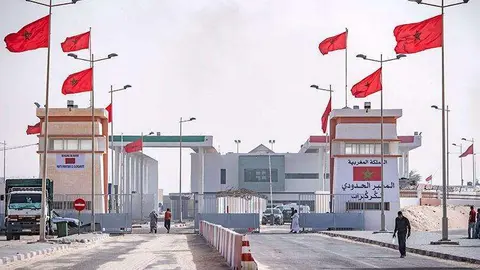SUMAR and its allies plan political offensive against Morocco

The composition of the electoral lists for 23 July illustrates several lessons for the country's immediate political future. It is a political x-ray of the real state of the groups contesting the elections, their ambitions, their capacities, their possibilities and their weaknesses.
The first lesson is that the whole of the political right, the Popular Party, VOX, together with the Basque Nationalist Party and other minority formations, is convinced that it is going to win and is already preparing to govern. Its lists are a sample of future ministers, secretaries of state, senior civil servants. They are taking positions at the starting blocks. If there are no last-minute surprises, the next government will emerge from these lists. The "dismantling of Sanchezism" that candidate Núñez Feijoo has promised entails profound changes in the judiciary, in the legislature, in large state-owned companies, in the extensive ramifications of central ministries and regional governments that permeate civil society. There will be numerous dismissals and appointments. Internal party differences, the difficult "coexistence" between the Popular Party and VOX and the necessary tactical alliances they will have to make will be put aside in the face of the euphoric prospect of returning to power.
The second lesson we can learn is that the members of the current coalition government, still in office, already see themselves as losers. In their lists, both the PSOE and the nebula to its left, with the SUMAR brand as a banner, are trying to place their faithful, those who can guarantee the future existence of an opposition capable of acting as a bloc. Both Pedro Sánchez and Yolanda Díaz want to have two solid, fighting parliamentary groups, with the capacity for initiative and the desire to hinder the legislative work of the next right-wing government in Spain as much as possible.
And it is precisely here where the third lesson arises; and that is that the divergences that have emerged in public between the partners in the coalition government in its two and a half years of legislature will not withstand the effects of the more than likely electoral defeat. The PSOE will tend to return to its centre-left position, absorbing part of the liberal centrism with the disappearance of Ciudadanos and also those disenchanted with the popular left, and firmly aligning itself with European and Europeanist social democracy. While the nebula to its left, with the last-minute alliances between SUMAR, Podemos and the rest of the national and regional formations in its orbit, will tend to occupy the space of radicalism. The PSOE lists show that it wants a coherent and effective party of responsible political opposition; the lists of SUMAR and its allies show the intention to conquer again the streets and squares, which is where its leaders believe they have more support and possibilities of survival.
The inclusion of the pro-Polisario militant Tesh Sidi as number three on the SUMAR lists in Madrid, ahead of the leader of Más Madrid, Iñigo Errejón, and Podemos' number one, Ione Belarra, indicates that the future radical opposition is going to make 'the Moroccan question' a permanent cause for agitation, not only in Parliament, where questions and propositions are expected to rain down to hinder and deteriorate relations between Spain and Morocco as much as possible, but also in the streets.
The SUMAR/Podemos duo will once again take to the streets. There will be no shortage of reasons to justify it: the longevity of the Sahara conflict, which is not likely to end soon; the negative effects on the Spanish economy of the crisis with Algeria; the foreseeable end of the fishing agreements with Morocco, at least in their current format (the alternative of mixed Spanish-Moroccan companies in the sector should be explored); immigration, drug trafficking, the issue of Ceuta and Melilla; Canary Islands waters and underwater resources, etc.
If all the predictions are that Núñez Feijoo's expected government will maintain the commitments of 'state policy' signed by his predecessor, both in relation to Morocco, the Sahara, the bases and agreements with the United States, NATO and the European Union, it will have to overcome numerous obstacles. In his favour will be the good economic situation inherited from Pedro Sánchez and the agreements and financial promises of European funds with which to move forward.


